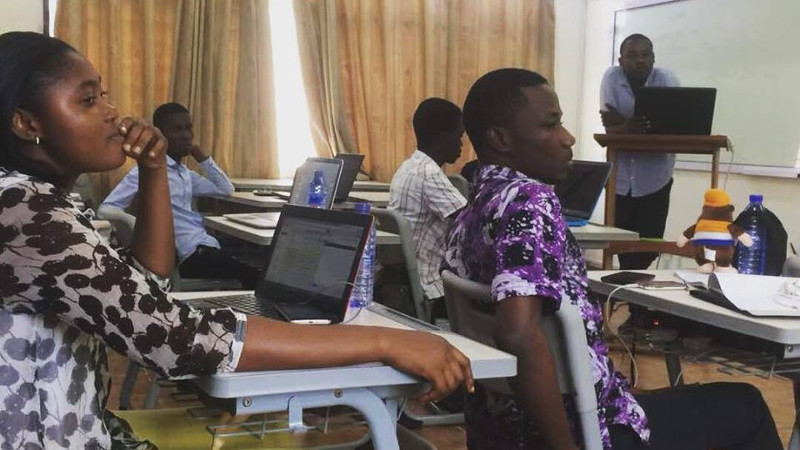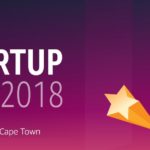In a move that signals a major leap forward in generative AI, OpenAI has quietly rolled out ChatGPT-5, its most advanced model to date….
How a pickpocket inspired the founding of Ghana’s first data science academy

What would you do if a pickpocket stole an iPod Touch that took you months to save for?
Seven years ago Ghanaian Jeph Acheampong was the victim of pick pocketing in Accra, Ghana. Acheampong, together with Larbi Adjei-Lawrence, is the founder of Blossom Academy — Ghana’s first data science academy.
Four years after the pick-pocketing incident, while addressing a class of Ghanaian students, Acheampong says he wondered: “What if that young man could have found a decent job? Wouldn’t he rather do that (than pick pocketing)?”
Blossom Academy’s curriculum is designed in collaboration with startups and through strategic partnerships with several academic institutions
Acheampong estimates that every year in Ghana, around 250 000 university graduates enter the job market but that only two percent find private-sector jobs.
“Meanwhile, high-growth startups are generating large amounts of data about their customers and their buying behaviour. However, they cannot find nearly enough data scientists to analyse this data for strategic decision making,” he says.
This, he says, is why he and Adjei-Lawrence, founded Blossom Academy. Acheampong hopes that the centre will help create the next generation of West African data scientists and help tech startups to visualise data and extract meaningful insights.
In addition, Acheampong believes that besides helping startups “personalise” their products and services, Blossom Academy will also reduce the costs associated with recruiting, training and lower the chances of companies hiring the wrong people.
Blossom Academy works primarily with Ghana’s leading startups to design a curriculum that Acheampong says “addresses their data-related deficiencies”. “In return, we give them preference to our top graduates,” he explains.
Since its launch in January, the academy has largely been bootstrapped by the co-founders themselves, having received a $1000 equity-free investment from the True Worshippers Spirit of Leadership Conference.
‘Strategic partnerships’
Despite this, Acheampong and Adjei-Lawrence have been able to sign “strategic partnerships” with organisations like DataCamp, Data Science Institute at Columbia University, IBM Big Data University, and Kwame Nkrumah University of Science and Technology.
Acheampong says these partnerships allow the academy to re-purpose their world-class resources for the academy’s year-long training programme.
Blossom Academy’s programme covers topics that include data analytics and business intelligence. A core component of the course involves real-world experience which sees participants work on different projects provided by the academy’s startup partners.
“Through our analytics division, the accelerator also provides fellows with two-year employment after they complete the training, which could potentially lead to employment with multinationals, operating across Africa, through our placement programmes,” says Acheampong.
Tough selection process
Getting into the academy however, is no easy feat. Their inaugural selection process attracted over 950 candidates. After two months of meticulous analysis, they selected the top 0.7% or eight candidates, for a pilot fellowship programme.
In all, Acheampong says the academy hopes to train 50 more graduates in the next two years. He says this will result in 25 applicants being selected each year.
He says the centre’s inaugural selection process started with a “rigorous” aptitude test on the IBM Data university platform. The top 10% of candidates from the test then took on two case studies. Thereafter, the top 10% of candidates from the technical stage were further assessed on data aptitude, grit and leadership skills.
The centre currently does not charge tuition for the programme, although Acheampong says this could change in the future. Instead, graduates sign an income-sharing agreement and are asked to submit a non-refundable deposit of $250 (which is credited towards participant’s income-share agreement).
Acheampong says one of Blossom Academy’s biggest challenges has been around getting more women to realise that data science is “not strictly for men”.
“We were especially appalled to see one of our best applicants quit the selection process because her parents would rather have her focus on raising a family. This has inspired us to get more active women on our board of directors and recruit more female ambassadors,” he adds.
Blossom Academy’s next application cycle, which will be open to all West Africans, will be held in the last quarter of the year.
Featured image: Blossom Academy fellows in a session in May (Blossom Academy via Facebook)


